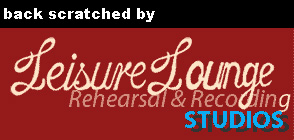|
PA Systems (Personal address systems):
This mainly consists of speakers, as far
as you are concerned.
All the sound produced by the entire band will be projected
into the audience by these speakers,
instead of coming from
each musician individually, this gives
a fuller sound, and means the sound engineer
can sort
out the balance through
the sound desk. This is huge, and will either be in house
(ie, owned by the venue) or will be
supplied by the promoter.
DI (direct imput):
This is when a certain instrument (or sound) goes straight
into the PA system,
this is used in outputs such as keyboards, or decks, which do
not rely on going through an amp or
mic,
to modify thier sound. These go through a DI box,
which will probably be supplied by the venue/promoter.
Drum
mics:
Usually consist of, bass, snare, hi hat,
and ambiance.
Backline:
All the amps
a band are using, so called as they are at the back, in a line,
unless you have some unusual ritual and require them to
be in a circle...
Breakables:
All parts of the drum kit which
are made up of cymbols (can include
pedals and snare),
you are usually asked to bring these, you
could be asked to bring your kit, but it's
usually bands
who want to bring their
own kit, and promoters that don't, cos it
takes massive change over time
(keep this in mind,
if you do, cos schedules are usually
so very tight)
Monitors:
The big blocks on the front of
the
stage, when I was starting out,
someone described them, as the things guitarists
put one leg up onto when they
are soloing.
However, there purpose is to play to you what
the audience is hearing, so you can hear what
you are
doing, and not just the double
bass pedal bashing your brains out.
Floor tuners:
Are definately,
THE only way to tune up on stage.
However well trained your ear is, adrenaline pumps
on stage, and listening to someone
tuning thier bass,
isn't very pretty. It is also
a time to talk to the audience.
Sound Check:
This
is more for the sound engineer
to check you out (and if you're sound checking first, to check
out the set up of the
equipment).
Sound checks can be as daunting as engineers making each
musician solo before doing
a group check, but
this isn't that common.
Checks last from around half
a song, to 10 mins.
Use sound checks as a quiet rehersal,
save your performance for later
on! And don't worry if you mess up,
just fix up quickly! Also, listen
to the other
bands, so you can see how the night is going to work.
Sound checks are in reverse order (if everyone is present) with
the headlining
band going first, and the first band going last.
Sound engineers:
can be the most
difficult people in the world, however, if you piss
them off, they could break your gig (but Edyum don't deal with bands
who would piss off
engineers, so we're OK). Don't be entirely
intimidated by the engineer, do what they say, but ask
questions if you need to!
Sound engineers are probably running against time, when sound checking, so save
your intro
track for afterwards!
Stage Manager:
You probably won't be introduced to the stage manager.
If
someone back stage, who
you've never met in your life, tells you to tune the fuck up, then that's them.
Their job is
to get you on stage, on time,
tuned up,
with all your gear, and then get you off
again. It's better to get off
stage when told, so as not to piss off
the stage manager, or the band after.
BACK LINE
Guitar amps:
are either head and cabs
(head and cabinets) or combos. A head and cab will have the speaker below a removable bit, which has all the buttons on it,
this is useful as bands can use the same cab, and different speakers, meaning quicker change over times, less hassle etc.
A combo, is a speaker, and buttons is one.
|

